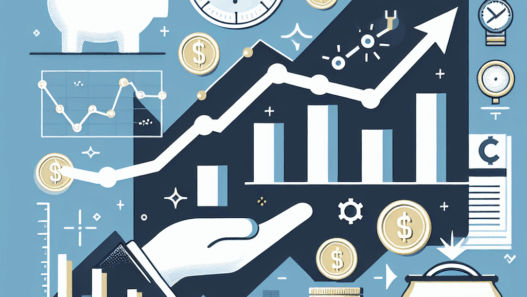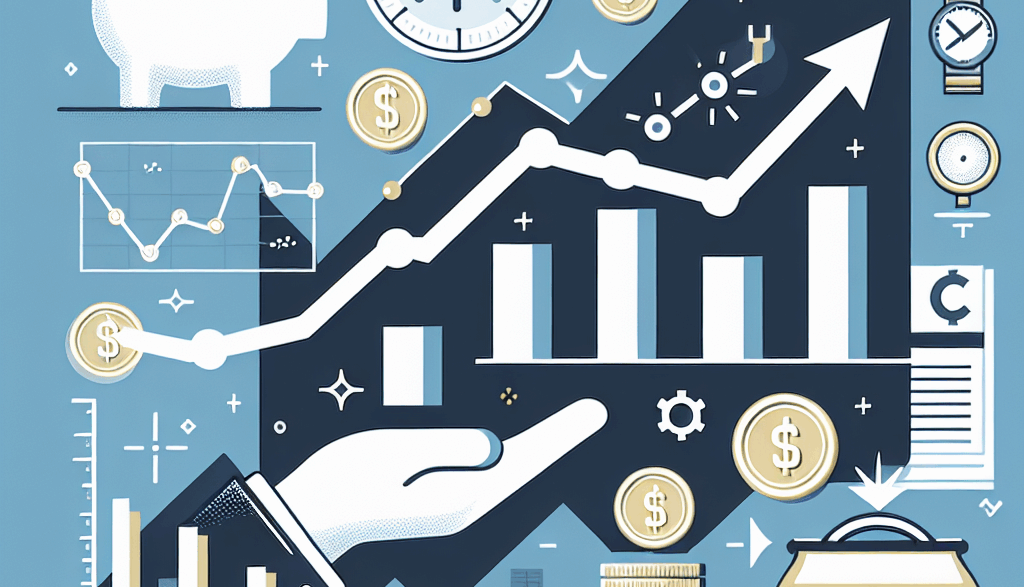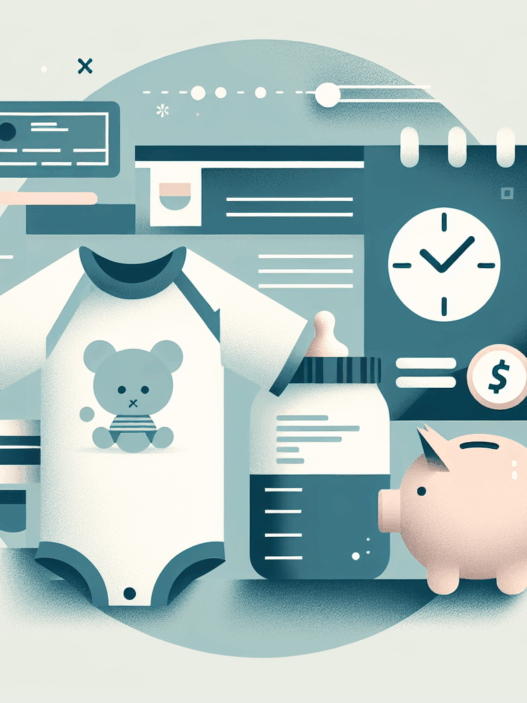Interest rates are one of the most powerful forces in the financial world, and when they rise, the ripple effects can be felt across virtually every aspect of your personal finances. From the money you earn on savings to the amount you pay for loans, understanding how rising interest rates impact your financial situation is crucial for making informed decisions and protecting your long-term financial health.
Whether you’re a seasoned investor or just starting your financial journey, the current environment of rising rates presents both opportunities and challenges that require careful navigation. Let’s explore how these changes affect different areas of your financial life and what steps you can take to adapt your strategy accordingly.
The Impact on Your Savings and Investments
Higher Returns on Savings Accounts and CDs
One of the most immediate benefits of rising interest rates is the increased return on your savings. Traditional savings accounts, money market accounts, and certificates of deposit (CDs) typically offer higher yields when interest rates climb. This means your emergency fund and other cash reserves can finally start earning meaningful returns after years of near-zero interest rates.
For example, if you have $10,000 in a high-yield savings account that moves from 0.5% to 4% annual interest, your yearly earnings jump from $50 to $400. This significant increase can help your savings keep pace with inflation and provide a better foundation for your financial security.
Bond Market Opportunities and Risks
Rising interest rates create a complex situation for bond investors. While existing bonds lose value when rates rise, new bonds offer higher yields, making them more attractive for income-focused investors. If you’re planning for retirement, this shift can provide better income-generating opportunities for your portfolio.
However, if you own existing bonds or bond funds, you may see temporary declines in their value. The key is to maintain a long-term perspective and consider whether the higher yields on new bonds align with your investment timeline and risk tolerance.
Borrowing Costs and Debt Management
Mortgage Rates and Home Buying
Rising interest rates have a profound impact on the housing market and your ability to buy or refinance a home. Higher mortgage rates mean larger monthly payments for the same loan amount, which can significantly affect your home-buying power. For instance, a 1% increase in mortgage rates can add hundreds of dollars to your monthly payment on a typical home loan.
If you’re a first-time home buyer, this environment requires careful consideration of your budget and timing. You may need to adjust your price range or consider waiting for more favorable conditions, though timing the market is notoriously difficult.
For existing homeowners with adjustable-rate mortgages, rising rates mean higher monthly payments. If you’re in this situation, consider whether refinancing to a fixed-rate mortgage makes sense, even if the rate is higher than your current adjustable rate.
Credit Card and Personal Loan Interest
Credit card interest rates typically rise alongside federal interest rates, making existing debt more expensive to carry. If you have credit card balances, the cost of maintaining that debt increases, making it even more important to focus on cutting credit card debt quickly.
Personal loans and other variable-rate debt also become more expensive, affecting your monthly cash flow. This makes it crucial to prioritize debt repayment and avoid taking on new high-interest debt unless absolutely necessary.
Strategic Adjustments for Your Financial Plan
Reassessing Your Investment Portfolio
Rising interest rates often create volatility in stock markets, particularly affecting growth stocks and companies with high debt levels. This environment may favor value stocks, dividend-paying companies, and sectors that benefit from higher rates, such as financial services.
Consider rebalancing your portfolio to ensure it aligns with the new interest rate environment. This might mean increasing your allocation to cash and short-term bonds while maintaining a long-term perspective on stock investments. Remember, whether to invest money or save it depends on your individual circumstances and time horizon.
Cash Flow Management
With higher borrowing costs, maintaining strong cash flow becomes even more critical. Review your budget to ensure you’re not living beyond your means and look for opportunities to reduce expenses.
Consider accelerating debt repayment, especially for variable-rate debt that will become more expensive over time. The money you save on interest payments can then be redirected toward savings or investments that now offer better returns.
Opportunities in a Rising Rate Environment
Building Your Emergency Fund
Higher interest rates make it more attractive to build and maintain an emergency fund. With savings accounts offering better returns, you can feel more confident about keeping 3-6 months of expenses in cash without worrying about inflation eroding its value as quickly.
This is particularly important in an uncertain economic environment where job security may be at risk. Having a well-funded emergency fund provides peace of mind and financial flexibility.
Income Generation Strategies
Rising rates can benefit those focused on generating income from their investments. Consider exploring ways to generate passive income through higher-yielding bonds, dividend-paying stocks, or real estate investment trusts (REITs) that may benefit from the changing interest rate environment.
For those approaching or in retirement, higher interest rates can provide better income opportunities, though it’s important to maintain a diversified approach and not chase yields without considering the associated risks.
Long-Term Financial Planning Considerations
Retirement Planning Adjustments
Rising interest rates can have mixed effects on retirement planning. While they may reduce the present value of future expenses, they also provide better opportunities for generating income from conservative investments. This can be particularly beneficial for those wondering how much they need to retire comfortably.
Consider adjusting your retirement savings strategy to take advantage of higher yields on bonds and CDs, while maintaining appropriate stock allocations for long-term growth.
Tax Planning Implications
Higher interest rates can affect your tax situation, particularly if you’re earning more from savings and investments. The increased income from interest may push you into a higher tax bracket or affect your eligibility for certain deductions and credits.
Understanding the critical nature of tax planning becomes even more important in this environment. Consider working with a tax professional to optimize your strategy and take advantage of available deductions.
Practical Steps to Take Today
To navigate the rising interest rate environment effectively, consider these actionable steps:
First, shop around for better savings account rates to maximize the return on your cash reserves. Many online banks now offer competitive rates that significantly exceed traditional brick-and-mortar institutions.
Second, prioritize paying down variable-rate debt, as these costs will continue to increase. Focus on high-interest credit cards and adjustable-rate loans first.
Third, review your investment portfolio and consider whether adjustments are needed based on your risk tolerance and time horizon. Don’t make dramatic changes based on short-term market movements, but ensure your strategy remains appropriate for the new environment.
Fourth, take advantage of higher yields on conservative investments like CDs and Treasury bonds, especially for money you’ll need within the next few years.
Conclusion
Rising interest rates create a complex web of effects across your personal finances, presenting both challenges and opportunities. While borrowing becomes more expensive, savers finally have the chance to earn meaningful returns on their cash reserves. The key to success in this environment is understanding these impacts and adjusting your financial strategy accordingly.
Rather than panicking about rate increases, view them as an opportunity to reassess your financial position and make strategic adjustments. Focus on paying down high-interest debt, taking advantage of better savings rates, and maintaining a long-term perspective on your investments. By staying informed and proactive, you can navigate this changing landscape and even emerge in a stronger financial position.
Remember, successful financial management isn’t about timing the market perfectly – it’s about making consistent, informed decisions that align with your goals and circumstances. Rising interest rates are just one factor in your overall financial picture, and with the right approach, you can adapt and thrive regardless of the rate environment.




















